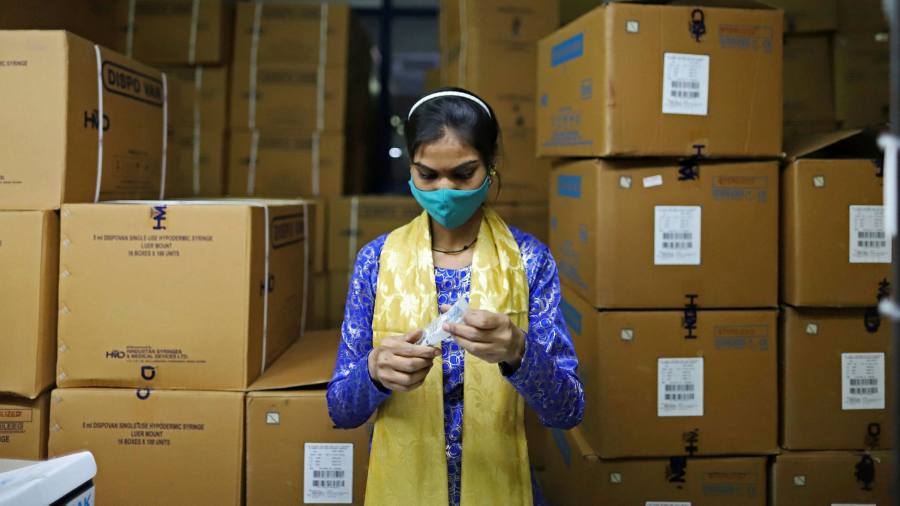[ad_1]
Just beyond India’s colonial-era capital, the prosperous state of Haryana has capitalised on its proximity to New Delhi’s corridors of power, and its ample available land, to emerge as a hub of business and industry.
Its gleaming offices house local headquarters of around 75 per cent of the Fortune 500 companies operating in India. They are also home to a good chunk of India’s business process outsourcing industry, local tech darlings such as Zomato and Grofers, and the country’s largest domestic airline, IndiGo. Sprawling factories make cars, motorbikes and parts for Suzuki, Honda and other automakers.
But despite a reputation for business-friendliness, Haryana has now thrown a googly to the investors that flocked there. The state government — run by Prime Minister Narendra Modi’s Bharatiya Janata party — has adopted new rules that restrict companies from hiring workers from other states.
The restrictions, signed into law this month, mandate that 75 per cent of all new hires for jobs that pay less than Rs50,000 per month must henceforth be awarded to Haryana residents of at least five years’ standing. The move comes several years after violent protests by local youths struggling to make the transition from farming to the jobs market.
Business groups are up in arms, saying companies need flexibility to choose the most suitable workers for their operations. Critics say local hiring requirements violates fundamental tenets of India’s constitution, which bars discrimination based on birthplace and guarantees the right to free movement.
But Haryana’s restrictions reflect the new parochialism spreading across India, as politicians confront growing public frustration at the lack of sufficient jobs to absorb the estimated 12m young Indians joining the labour market each year. The longstanding problem has been exacerbated by the Covid pandemic shock.
“Such rules reflect a larger malaise in the Indian economy, which is that it is not generating enough jobs,†said Mahesh Vyas, managing director of the Centre for Monitoring the Indian Economy. “Once you do not generate jobs, there are political pressures on local government to do something about it.â€
Besides Haryana, Jharkhand, a centre for mining and heavy industries such as steel, will require private employers to reserve 75 per cent of jobs with salaries of Rs30,000 or less for state residents.
Rival parties in forthcoming elections in Tamil Nadu, a hub of textile and automotive production, are promising also private sector jobs reservation for locals. Several other states are contemplating similar polices.
Vyas said local hiring requirements would be “very counter-productive†and likely to drive new investment away from states that adopt them. In Haryana, the thriving back-office process outsourcing industry will be particularly hard hit, as it now draws educated, technically skilled and highly mobile young workers from a nationwide talent pool.
Reetika Khera, economics professor at Delhi’s Indian Institute of Technology, said Haryana’s job reservations reflected the “policy confusion†of Modi’s BJP, which had vowed to improve the ease of doing business in India.
“On one hand, they want to bring in FDI and open the economy, and on the other hand they want to protect Indian businesses,†she said. “Now it’s being taken down to a lower level. You say, ‘one nation, one market’ but for labour you don’t want that ‘one nation one market.’ You say only, Haryana labour for Haryana.â€
Companies are going to court to challenge local hiring rules, which analysts predict will not withstand judicial scrutiny. A.K. Automatics, a motorcycle components maker, and the Gurgaon Industrial Association have both filed cases calling the restrictions unconstitutional.
But the battle could take years and will in the meantime cast a cloud of uncertainty over investors. Khera predicts the emergence of “a whole racket of getting fake domicile certificates†to assist potential job seekers, while the state may also offer a complex web of exemptions in response to industry demands.
But pressures for state-level labour market protectionism are unlikely to abate without a dramatic pick-up in new job-generating investments. For employers, pressures to increase local hiring will be one more minefield to navigate.
[ad_2]
Source link







